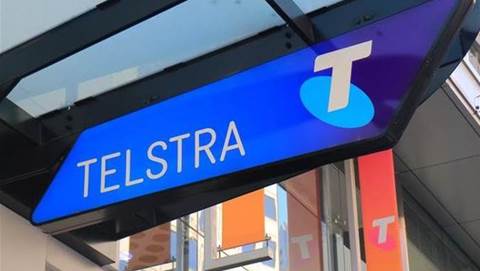Telstra has asked the government to delay the planned implementation of the broadband tax until mid-2021 to fix what it sees as a glaring problem in the scheme’s construct.

After a series of delays that have prevented the government from passing the tax - officially called the regional broadband scheme (RBS) levy - into law, the government has said it wants the scheme in place by July 2020.
The tax is intended to apply to both residential and enterprise fixed-line premises.
However, Telstra argues it is difficult to calculate the number of premises associated with an enterprise account, and therefore the tax should either not apply to enterprise, or the way it’s applied should be redefined.
“In enterprise (large business) markets, an end user may have multiple broadband services delivered to a single premises or multiple adjacent or non-adjacent premises, with these arrangements subject to constant flux in ways that are not transparent to carriers,” Telstra said in a parliamentary submission. [pdf]
“In the enterprise sector, carriers often have limited visibility of the number of premises served by their superfast infrastructure, even where they are providing retail broadband services using that infrastructure, in particular because in many cases there is privately-owned in-building cabling between the carrier’s network and the end user’s broadband access points.
“It is not possible for the end points of every length of privately-owned cabling to be recorded and published in real time on a monthly basis.”
Telstra said while the easiest thing for the government to do would be to not levy the charge on enterprise, an alternative solution would be to redefine how the tax is applied.
“If the charge cannot be limited to residential markets it should be based on services rather than premises,” Telstra said.
“Carriers always know how many services they are supplying because services are billed for, eliminating the information problem associated with the premises model.”
However, to redefine the RBS in that way, Telstra argued the government would need to delay the scheme’s introduction even further.
“As further consultation would be needed to determine and settle the necessary legislative changes, the current commencement date of 1 July 2020 would need to be pushed back, probably to 1 July 2021,” it said.
Telstra said it could be left with a bigger tax bill with the change, but that it would be preferable to what it saw as an uncertain liability under the current scheme.
“Telstra does not propose a services-based tax to replace a premises-based tax in order to reduce our financial liability,” it said.
“Indeed, it may be that we are liable to pay a higher total amount under a services-based tax, but if so that is a price we are willing to pay in order to secure the certainty and clarity which is unachievable with a premises-based tax.
“We expect that the cost to Telstra of uncertain liability and the risks associated with it under a premises-based tax would be higher than the cost of a larger monthly bill under a services-based tax.”





















